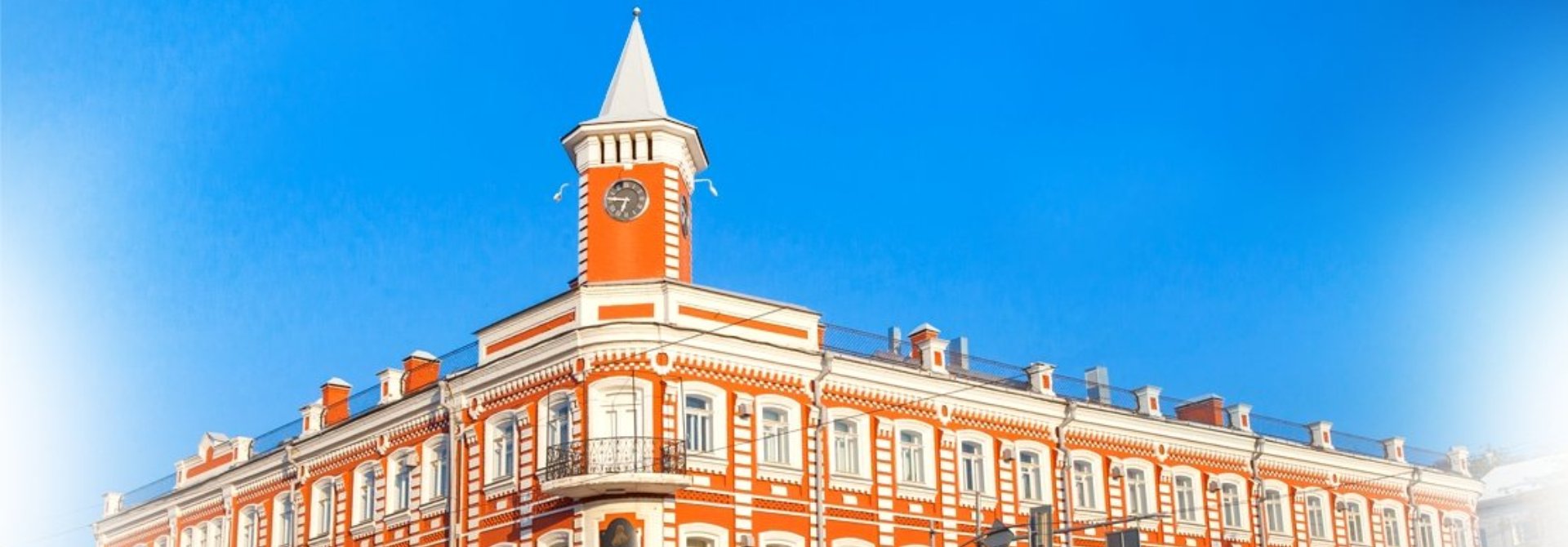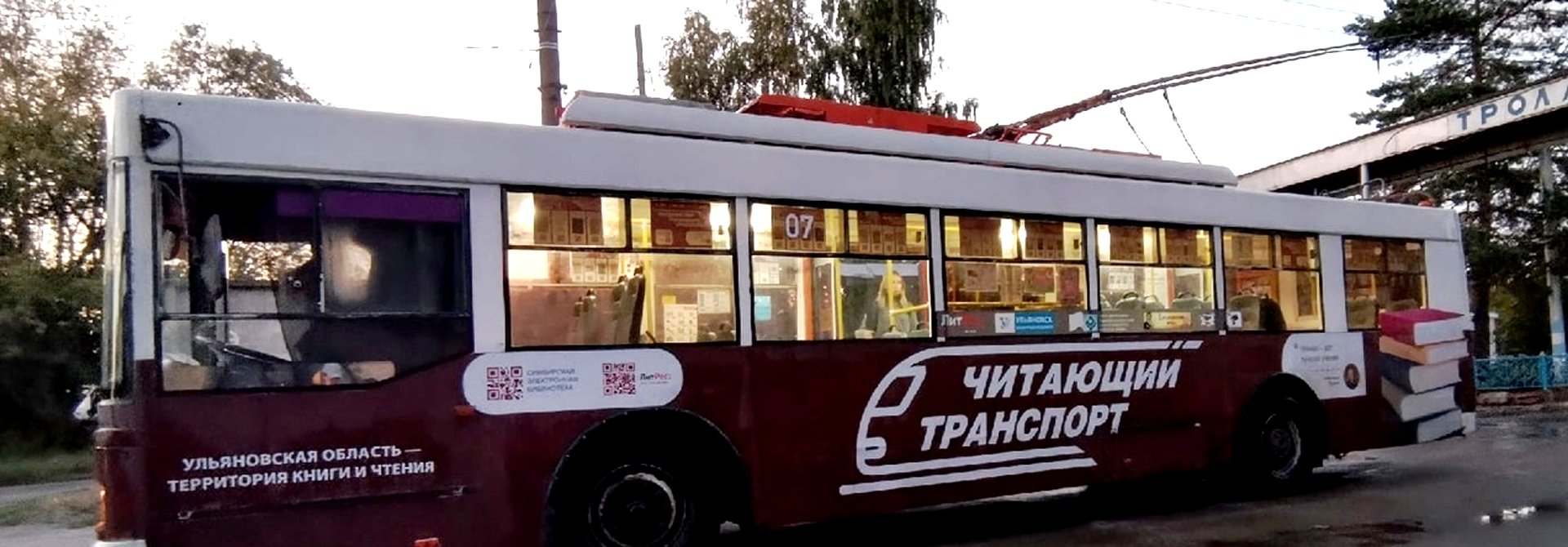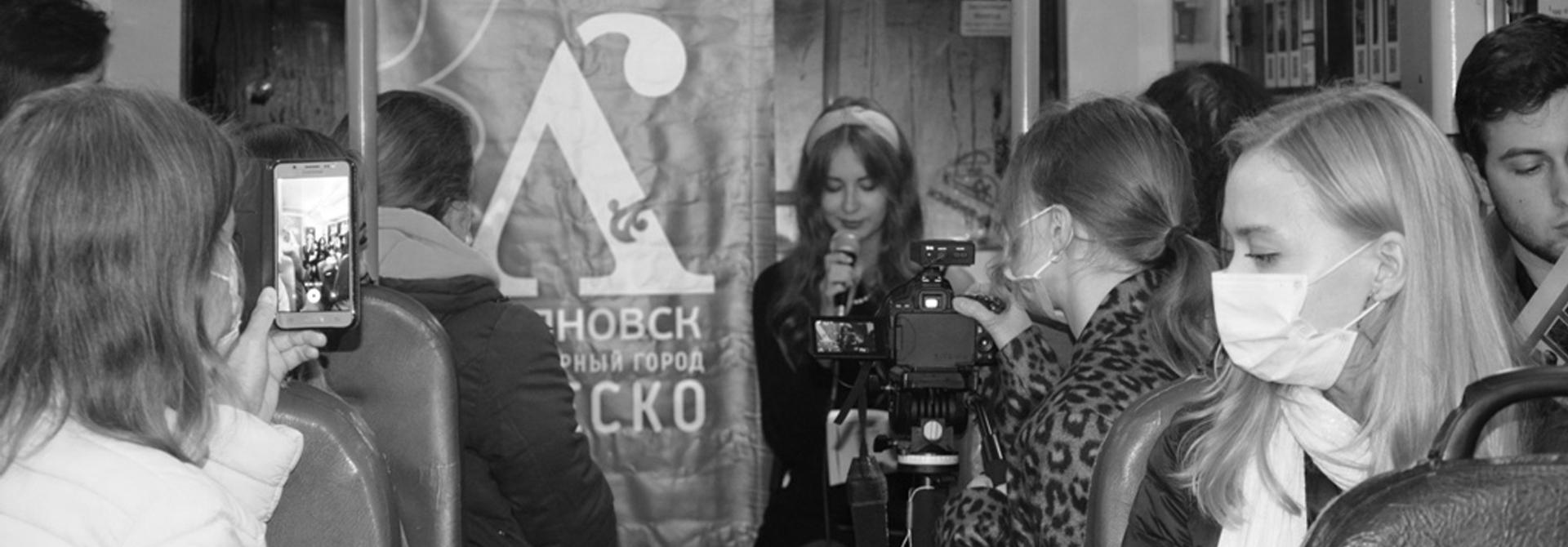
The Ulyanovsk UNESCO City of Literature Program Directorate continues publishing The Only Question - new international project - materials. 40 authors from 18 UNESCO literary cities (or related cities) participate in the project. Authors from Heidelberg and Ulyanovsk|Moscow – Şafak Sarıçiçek and Irina Bogatyryova – are the new guests of the project.
The organizers invited writers, poets, playwrights, translators from UNESCO literary cities to imagine they have the opportunity to ask just one question to an author from any other literary city. The initiative will help to introduce the authors from the literary cities to each other and establish their dialogue. The project will also let to understand what issues are of concern to authors from different countries today. Besides, it will provide an opportunity for readers to get to know new writers and poets.
Questions and answers by the authors (in Russian and English) along with a short biography of each participant and links to their publications will regularly appear on the Ulyanovsk UNESCO City of Literature Website, other literary cities' websites, and social media, etc. Writers' dialogs will also be offered for publication on the project partners' platforms (literary magazines, libraries, literary media, and mass media). As a result of the project, in summer 2022 an online anthology will be released (in Russian and English) with all the conversations.
Heidelberg and Ulyanovsk|Moscow – Şafak Sarıçiçek and Irina Bogatyryova
Şafak Sarıçiçek
Dear Irina, you’ve written in many different genres, at the same time you’re a musician and anthropologist. A passionate hitchhiker, and so to say from a bourgeois understanding: also an adventurer, your novels touch topics as diverse as historical clubs, in which members recreate and embody the Soviet past or for example, another novel on the ancient Scythian people, the heroine being a warrior and priestess - but at the same time you have written literature for children as well. The heroine of your novel Comrade Anna becomes disillusioned with the historical club that influenced who she is, to find a way to make her idealism matter in the “real world“. Your hitchhiker heroine finds in the idealized USA of Kerouac an obese and decadent place. In your own words, you feel we live at “the junction of eras” where we can see clearly enough what used to be, but not what is about to come.
The characters of your novels are mostly heroines, and you state that women are much better at adapting to sudden societal changes, putting forward the example of Post-Soviet Russia in the 90s. Am I right to see a search for mythology and societal meaning lost, of transitioning values, both in the macrocosmos and in the small, in ordinary people's lives inside of your writing and that the female power is a force of renewal as well as of meaning inside of it as well – or am I mistaken ?
What is meant by psychological types which fundamentally remain the same, when change in itself seems to be such a driving force in your writing ?
Irina Bogatyryova
Dear Safak,
I'm also very glad to get to know you and to communicate via this project. I studied about you and your poetry in the Internet and I'm really happy to know such interesting contemporary poet. Unfortunately I don't speak German, so I got only a feeling of your poetry, not deep diving into it, but as far as I understand you combine traditional sound of classical European poetry with nowadays, actual social problems and themes.
And also you use an image of climate changes as an opposite to human life. That made me to ask you such question: on your opinion, may it be a world, human world of course, with no nature changing? May people life in harmony with natura - or may be they would like, but can't? And if such world is possible, what it may look like? Can you imagine and describe it?
Şafak Sarıçiçek
Dear Irina,
thank you for your question(s) as well. It's true that I aim at synthesizing poetic tradition and contemporary poetology. There is much one can learn from the poets before oneself, but of course a poet should have a sensibility for the issues of his time.
When I was younger I read a lot of essays by anarcho primitivists and ecological anarchists such as Murray Bookchin or John Zerzan, who both deal with the questions you address and which I found inspiring. Of course with the technological development we have nowadays and the massive population surge a sudden radical change to primitivist or tribalist societies seems far-fetched and would result in great atrocities as well. But if we use technology symbiotically with an ecological lifestyle, while at the same time simplifying our way of life and societal / individual habits, such a world of harmony with nature is possible. In some Kurdish regions already a feminist, basic-democratic and ecological society is said to have been established. Also, as far as I know, by the Zapatistas in Mexico. We would have to get rid of notions such as Dominance of one individual over another, as far as this is possible, and many issues we have today are also results of concepts such as hierarchy, abstraction from individuals, mass consumption and the dogmatic belief in endless progress and resources. In the midst of it, there is also the ideology of anthropocentrism. Maybe if we consider that existence isn't only about us and about our needs, we will also have a more harmonious understanding of life and living together and from there a more humane society can be built.
Irina Bogatyryova
Dear Safak,
Thank you so much for your answer! You are so deep in the question that it was very interesting to know your opinion.
What about your question(s) I'd like to say that mythology is really one of the most interesting things for me and I write usually from this point of view - no matter if it is the ancient Scythian mythology, Soviet mythology or any other. I'm absolutely sure that myths are the base of our thinking and social behaviour. But the question is what myth rules our life - it's very interesting, because we rarely can choose the myth as a system, usually we even don't understand it exists, the same as fish can't see water while stays in it according to the well-known quotation. In my writings I often use some myth as a system and try to put my characters in it or to take them out - both are situations when the myth becomes visible like water for fish that was taken from it. Or I try show two different myths that can be in a conflict, so people who live inside them should be in a conflict as well. And it's interesting to watch the transformation of mythos and its values - e.g. Soviet myth in our Russian society (as in my novel "Comrade Anna"). What about female power I'm not sure that it's a force of renewal in my proze. Mostly it's a force of tradition that helps male characters not to forget who they are and what main things in their life are.
I suppose that psychological types don't change during the whole human history/ That's why we can understand the motives of actions of historical persons and read ancient literature - it's the thing that connects epochs and cultures. But it doesn't mean that people don't change - of course not! It means only that there is some base inside of us that helps all people to be people during time changes - and especially helps writers to describe any societies, even they've never seen.
ABOUT THE AUTHORS
ŞAFAK SARIÇIÇEK

Photo by Born in Istanbul. Studied Law in Heidelberg and Copenhagen. Published five poetry books, last: Im Sandmoor ein Android. Also published in many different anthologies and literary magazines. Various awards, last: Heidelberg Writers Prize 2021.
https://www.literaturport.de/Safak.Saricicek/
https://poesiefestival.org/en/artists/safak-saricicek/
https://www.brotundkunst.com/saricicek-safak
https://www.uni-heidelberg.de/studium/journal/2017/11/saricicek.html
https://elifverlag.de/portfolio/safak-saricicek/
https://www.youtube.com/watch?v=wkY25ym7qQU
https://www.textland-online.de/index.php?article_id=1553
https://www.quintus-verlag.de/Autoren/Saricicek-Safak/
IRINA BOGATYRYOVA

Irina Bogatyryova is a writer, musician, and anthropologist. She is the author of books "AvtoSTOP" ("Off the beaten track", Moscow, Glass, 2012), "Comrade Anna" ("Camarade Anna", 2018, Albin Michel), "Kadyn", "Spirits", "A formula of freedom", "I am a sister of Totoro", "White sogra", "Vedyana", "Moscow is speaking", etc. Novels and short stories were translated into English, Chinese, Dutch, Arabian, French, Swedish. Irina was born in Kazan, grew up in Ulyanovsk. Graduated from Moscow Literature Institute and Russian State University for the Humanities. Her prose was published in Russian literature magazines. She's a winner of the "Debut prize" - the literature prize for young writers, Goncharov prize, and Student Booker. A winner of Mikhalkov's prize for literature for teenagers and Kniguru - the prize for children's and teenagers' literature.
Plays the jew's harp in a duo "Olkhon Gate".
Publications:
In Russian
De aanval in Dutch.
Exit (Portal 9) in English and Arabic.
Camarade Anna in French, published by Albin Michel link
The Russian Kerouacs: Irina Bogatyreva’s guide to hitchhiking
Previous issues:
- Heidelberg-Ulyanovsk – Şafak Sariçiçek and Sergei Gogin
- Melbourne - Heidelberg – Christopher Raja and Klaus Kayser
- Calgary-Mannheim - Kelly Kaur And Claudia Schmid
- Melbourne And Ulyanovsk - Rijn Collins and Gala Uzryutova
- Heidelberg - Nottingham – Ingeborg von Zadow and Leanne Moden
- Durban-Ulyanovsk – Adiela Akoo and Sergei Gogin




